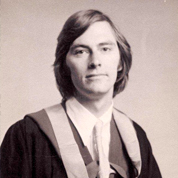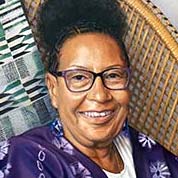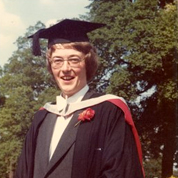Alumni
1970s Alumni profiles
Phelim Brady MBE, BA Social Sciences, 1972
 Phelim graduated in 1972 and when he applied to go to University, intended to study Economics and ended up on the BA Social Sciences course. He decided to change subjects and specialise in Sociology and Social Psychology for the next two years, because he had to take an option in the second year from outside your core programme and I chose economic history.
Phelim graduated in 1972 and when he applied to go to University, intended to study Economics and ended up on the BA Social Sciences course. He decided to change subjects and specialise in Sociology and Social Psychology for the next two years, because he had to take an option in the second year from outside your core programme and I chose economic history.
Phelim wanted to teach and immediately after his PGCE was offered a job at Lincoln College of Technology. After ten years in Lincoln (1973-1983) he moved to Farnborough in Hampshire (1983-2012) and ended his career there as the deputy principal of the college in December 2012. For the first part of he career he taught Sociology at O and A level and on other courses, in particular teacher training programmes. The last half of has career has been as a manager in a large further and higher education college.
While teaching and marking O and A level Sociology he became the chief examiner for the AEB O level papers and for a few years had the privilege of determining what counted as Sociology for thousands of teenagers.
Phelim says as he was in full time employment prior to going to Leicester it was not an obvious choice and some friends did say that he was making a mistake. He had left school after O levels, but while working full time decided to enter himself for three A levels. He entered University life with a full grant.
He tells us about his time at Leicester, and how these memories are wonderful, ''The new ideas, the excitement of study as an adult and the freedom to explore so many new areas of thought and experience was thrilling. The University was much smaller then and without the Medical School. This meant that you soon felt at home and started to recognise each other as you visited the various coffee bars and the library. The Social Science teachers did frequent the student coffee bars and there were often discussions going on between mixed groups of students and faculty. I made friends with one of my lecturers and she has been a dear friend ever since."
Jane Eswuantsiwa Goldsmith, BA Combined Studies, 1975
 Known as Jane Goldsmith at Leicester University, Jane has recently changed her name to Esua, a shortened form of her Ghanaian name Esuantsiwa.
Known as Jane Goldsmith at Leicester University, Jane has recently changed her name to Esua, a shortened form of her Ghanaian name Esuantsiwa.
Esua was the first woman and the only woman of colour to be elected as President of Leicester University Students Union (1975-6).
In 2015, Leicester University awarded her an Honorary Doctorate of Laws in recognition of her lifetime’s work in International Development and Women’s Rights.
In 2018, Leicester University commissioned a portrait of Esua, one of three new portraits, of women, by women artists, to be displayed in the Council Room space, extending the range of diversity captured in the art on display at the University.
“I chose Leicester because of the combined arts course, which was unusual at that time,” Esua says, “I’ve always been interested in so many different subjects, making connections, interacting with lots of different people and ideas, so the course really appealed to me – History, Politics, English, Philosophy, Sociology – and particularly phenomenology of religion, which was unique because it approached faith from an anthropological and cultural perspective.”
Leicester City was becoming increasingly diverse during the 1970s, with Asian immigrants arriving from Uganda. “We students got addicted to the wonderful curry houses - and I went down to Belgrave Road to buy a stunning green and silver sari which I wore to all the formal occasions. And of course, we marched against the National Front who were becoming increasingly active.”
Universities were much smaller in those days; there were around 3,500 students at Leicester so it felt like a community. Esua believes her generation were lucky in many ways - most of them entitled to some level of maintenance grant, there were good employment opportunities for graduates, and most students were not under the same kind of financial and career pressures as they are now. “Some of us were the first in our family to go to university, so we felt optimistic that we could make the world a better place. That’s why we have to support this generation of students, because it is far tougher for them.
The 1970s was a tumultuous decade - the rise of racism and the National Front, the 3-day week, the Irish troubles, legislation on gender and race equality, and the referendum to join the European Union, against the international backdrop of the Vietnam War and the Cold War. Esua threw herself into student politics with a passion - the women’s movement, anti-apartheid, gay rights, human rights, international anti-poverty, the Campaign for Nuclear Disarmament, and student grants campaigns. “Several hundred students used to turn up for Student Union meetings in those days. It was exciting, inspiring. I got my education in the Union – leadership, public speaking, activism, the beginning of my life-long commitment to feminism and social and political justice.”
Esua went on to complete a PGCE course at Leicester University School of Education, before serving for two years in Tanzania as a volunteer teacher with Voluntary Service Overseas (VSO). “I’d recommend volunteering to anyone of any age. It is a life-changing experience you can draw upon for the rest of your career.”
After VSO Esua spent a number of years working for Women’s Rights and International Development Organisations. She served as a Trustee on many Voluntary Sector Boards, including Chair of the Fawcett Society, Vice Chair of Action Aid UK, and Commissioner for the Women’s National Commission.
In 1995 Esua founded Anona Development Consultancy to work as an energiser, motivator and facilitator for voluntary organisations worldwide, offering management development, training, team-building and strategy development. Esua has worked with over 100 different organisations on five continents, developing global strategies for Wateraid, Oxfam and ActionAid, among many others. “My approach is participatory and inclusive,” she explains, “I work with groups of all sizes from six to several hundred in the room at the same time, using high energy, humour and an informal, light touch. It won’t work if it’s not exciting, inspiring and fun.”
Esua treasures the opportunities she has had to work with people all over the world on the issues she feels passionate about, and the lifelong friendships she made during her time in Leicester.
Iain Jones, BA Combined Studies, 1977
 Iain Jones began his undergraduate degree, in his home town, at the University of Leicester, in 1974, keen to pursue his love of the written word with Combined Studies in English, History, Archaeology and Art History (and to be close to his favourite football team!). Historical studies have remained a keen interest, as when he retired in his fifties he decided to return to campus in 2013 and took a Master’s degree in Archaeology.
Iain Jones began his undergraduate degree, in his home town, at the University of Leicester, in 1974, keen to pursue his love of the written word with Combined Studies in English, History, Archaeology and Art History (and to be close to his favourite football team!). Historical studies have remained a keen interest, as when he retired in his fifties he decided to return to campus in 2013 and took a Master’s degree in Archaeology.
The social side of university was a major part of student life in the 1970s. He met in Stamford hall, many of his lifelong friends, including his dear wife Judy, who is sadly no longer with us. Iain and Judy thoroughly enjoyed their time as students and loved nothing more than exploring the delights of our Botanic Gardens, at the halls of residence in Oadby.
Iain decided to complete a law conversion after his degree, and since then he has never looked back. He set up his own firm, Jones and Duffin in Leicester with his friend Peter Duffin. Iain practised law until he retired and is currently undertaking interviews with current and retired solicitors for an audio-history project with the University and Leicester City Council, on the history and townscape of Legal Leicester, in the old precincts of Greyfriars, after Richard III’s first burial to his more recent re-internment.
History and Archaeology are subjects Iain has always felt passionately about, and seeing his retirement as an opportunity to further explore, Iain enrolled onto our Masters in Archaeology degree – his first day was coincidentally the same date his daughter Alice went on to begin her own undergraduate degree in Politics and History at the University of Warwick.
Many doors have opened through following his interests, and with his infectious enthusiasm and determination, Iain went on to help set up the the Oadby and Wigston Fieldworkers Group. Iain excavated Medieval and Roman sites with both the Hallaton Fieldworkers Group and Castle Hill Fieldworkers Group, and Palaeolithic flints with the Farndon group in Newark. He regularly attends the post graduate seminars at the School of Ancient History and Archaeology on Wednesdays during term time and is recording oral histories for Colin Hyde at the School of Local History in the East Midlands Audio History project on Post War Leicester Leicestershire and Rutland.
Iain continues to live locally in Kilby, singing with local singing groups, and has helped to develop the village Woodland Trust and Parish Council. He travels extensively when he has time, and has seen his teams win the premiership in football with Leicester City, European cups and league titles in rugby with Tigers, including county championship and Twenty Twenty competitions in cricket with Leicestershire County Cricket club.
Iain’s advice to our current and prospective students is: ‘do not waste a minute of your time worrying; this is an opportunity to explore the unknown; embrace curiosity: this time is special, enjoy!’